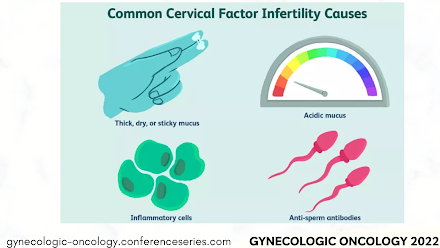How Can Vaginal Dryness Be Treated? Is Infertility a Possibility?
For fertilization, cervical mucus is crucial. Vaginal dryness results from little to no cervical mucus, which can affect your ability to conceive. Sperm need fertile cervical mucus, also known as egg white cervical mucus, to survive and move from the cervix into the uterus and ultimately the fallopian tubes.
Hostile cervical mucous is the medical term for
difficulties with cervical mucus that prevent pregnancy. Extreme vaginal
dryness, excessively acidic vaginal secretions, or immunological issues can all
be causes of hostile cervical mucus.
Find out more about the causes of low or absent
cervical mucus, how it affects fertility, and what you may do to remedy the
situation.
Cervical Mucus's Function in Pregnancy
Mild cervical mucus issues won't necessarily result
in infertility but may lengthen the gestation period. Serious cervical mucus
issues may call for hormone assistance or fertility therapy.
The perfect environment for semen to flourish and
travel freely is created by cervical mucus, which is crucial for developing
pregnancy. Cervical fluids increase and change in consistency just before
ovulation, becoming more like raw egg whites. Cervical mucus in this type
actively feeds sperm cells and improves their capacity to pass through the
cervical canal.
This procedure can be hindered and made more
challenging by any mucus issues. The quality and quantity of cervical mucus can
be enhanced, though.
Different Cervical Mucus Issues
Cervical fluid issues can include a wide range of
cervical mucus hostility. The following are a few of the most typical cervical
mucous problems:
Acidic mucus that makes the environment for sperm
hostile
Anti-sperm antibodies are protective proteins made
by the immune system as a result of a prior infection that can target and
destroy sperm.
Problems with Cervical Mucus: Causes
The menstrual cycle causes changes in the amount of
cervical mucus. However, when there is insufficient production or other
problems at hand that have a negative effect on cervical mucus. There are
numerous causes for cervical mucus that is either absent or insufficient.
Side Effects of Medicine
Some drugs may cause cervical mucus to become drier
or of worse quality. They could consist of:
Medications for allergies or antihistamines
Atropine
Especially if they contain an antihistamine or cough
suppressant, cold and sinus drugs
Antitussives Propantheline
Certain antidepressants and medicines for epilepsy
Treatments for Infertility
Common fertility drug Clomid can occasionally change
the cervical mucus. Poor cervical mucous quality is not a concern for everyone
using Clomid. It occurs more frequently
in people who take greater doses of Clomid 2


.png)
.png)
Comments
Post a Comment